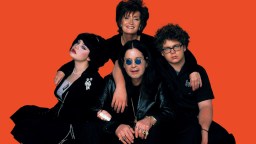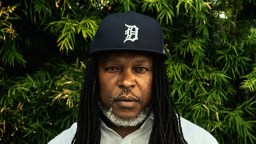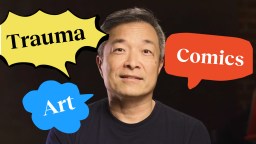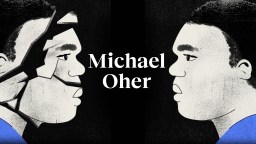John Furniss, most commonly known as The Blind Woodsman, has carved a remarkable path that proves vision extends far beyond eyesight. From a troubled youth grappling with blindness and addiction to a skilled artisan who finds purpose and beauty in the craft of woodworking, Furniss’ story is one of perseverance, transformation and acceptance.
Darkest before dawn
The 43-year-old’s journey began with a moment of despair that would forever alter the course of his life. As a teenager struggling with anxiety and social isolation, Furniss attempted suicide — an act that plunged him into a world of darkness, both literally and figuratively. “When I woke up in the hospital, they didn’t tell me I was going to be blind for a while,” Furniss recalls. The reality of his total blindness took years to fully sink in, and the loss of driving and target shooting hit him particularly hard.
The aftermath led him down a treacherous path. He returned to his hometown of Craig, Colorado, where familiarity offered some comfort. However, nostalgia came at a price as he became entangled in meth use and dealing. “Drugs kept me alive. It was my one reason for still living,” he admits.
Turning point
Faced with the choice between rehabilitation and incarceration, Furniss initially decided to go sober as a temporary measure to avoid jail time. But as the fog of addiction lifted, he discovered a genuine desire for change. This pivotal moment opened the door to new possibilities, even if the path forward wasn’t immediately clear.
His introduction to woodworking came through an unexpected channel: vocational rehabilitation. What started as an elective course soon revealed itself to be a purposeful calling. “It’s one of those things that came second nature to me,” he explains. Despite his blindness, Furniss possesses a vivid visual imagination that allows him to conceptualize and create intricate designs in his mind’s eye.
New beginnings
Woodworking offered Furniss more than just a hobby; it provided a means of self-expression and connection with the world around him. “I pour a part of myself into each piece,” he shares. His ability to transform mental images into tangible objects became a powerful form of communication, allowing him to share his inner visions with others.
This newfound passion not only gave Furniss a sense of purpose but also led him to love. It was through woodworking that he met his wife, Anni, whom he affectionately calls his “honeybee.”
Embracing blindness
Perhaps the most profound aspect of this journey was his eventual acceptance of his blindness. What he once saw as a hindrance is now a blessing. “I really, truly believe to be who I am and to do what I’m supposed to do, that I’m supposed to be blind,” he says. This realization, though complex and sometimes challenging, has brought him a sense of peace and belonging.
Furniss’ perspective on his blindness is both poetic and profound. “I feel like I had to lose my sight to truly gain my vision,” he says. This newfound outlook extends beyond the physical, allowing him to perceive the world in ways he never could before.
Furniss stands as a testament to the power of resilience and the human spirit’s capacity for reinvention. As The Blind Woodsman, he has not only mastered his craft but has also found a way to inspire others through his work and story. By embracing his blindness and discovering his talent for woodworking, he has created a life rich with purpose, creativity and love.
“It’s helped me use that vision to look below the surface and beyond the horizon,” he says, encapsulating a life philosophy that encourages us all to see beyond our limitations and find beauty in unexpected places.
We interviewed John Furniss for Perception Box Stories Untangled, a Big Think interview series created in partnership with Unlikely Collaborators. As a creative non-profit organization, they’re on a mission to help people challenge their perceptions and expand their thinking. Often that growth can start with just a single unlikely question that makes you rethink your convictions and adjust your vantage point. Watch Furniss’ full interview above, and visit Perception Box to see more in this series.
John Furniss: When I woke up in the hospital, they didn't tell me I was gonna be blind for a while. It took me a long time to really come around to it and face it fully. I know it sounds odd that I was able to avoid facing something so all-encompassing as total blindness, but we'll tell ourselves a lot of things to make ourselves think what we do or don't want.
I think the funny thing is it didn't really fully sink in for about, mm, I wanna say 10 or 12 years. I think the two things that hit me the hardest were that I couldn't drive anymore, and I couldn't target shoot. I loved driving, and I very much prided myself on target shooting, and those were two of the things that were going to be taken from me permanently.
I had kind of a hard time growing up because I felt like I didn't really fit in. I felt kind of different than my peers, I guess. I'd been experiencing a lot of anxiety. I just constantly feared things. I feared being looked down upon by my peers. I feared getting in trouble by my parents because I was smoking cigarettes and I was drinking, and I did whatever I could to hide it, but the more I hid it, the more it just eroded my soul.
Finally, I got to the point where I just didn't wanna do it anymore. I was just done, and then I went and sat in my car and did what I did. It didn't knock me out. Just went black. Everything went instantly black.
I definitely contemplated suicide after that again, 'cause no teenager wants to be different. I wanted to try to fit in as well as I could. After I shot myself and was blind, I got out of the hospital. I couldn't be the rebel that I wanted to be, so I moved back to Craig. It's where I grew up. I knew every square inch of that town.
I got heavily involved in meth. I got in trouble. Got put on probation for dealing drugs. Since most of my money was going to my habit, I was living in these really seedy boarding houses. I really was just kind of existing. I wanted to just be high all the time. Drugs kept me alive. It was my one reason for still living, and then it came to the point where I was going to either clean up my act or go to prison, 'cause that was a very real possibility.
Basically, in my mind at the time, it was "Okay, I'll stop using long enough to get off probation, and then I'm back on the horse." But luckily, once I finally did get totally out from under the spell, I did want to be clean. I did want to be totally done with meth. And at that point, I didn't even know what my path was. I just knew that it had the potential to go to a much better place.
And then, of course, I wanted to find a job. I wanted to get out on my own. I started working with vocational rehab. It's not a substance rehab. They are an organization that helps you find employment, specifically with disabled people, but they also had the elective of wood shop. Come to find out there is a very large community of woodworkers that are blind.
I've always really been into crafts, so I decided to give it a try, and it's one of those things that came second nature to me. I have such a vivid visual imagination. It's really like I have a computer design program in my mind. I'm able to literally take the layers and put them together, the shapes, the colors, and change anything and everything I want to.
I pour a part of myself into each piece. One of the things that I love the most about woodworking: I can take this design that only I can see in my mind, and then I turn it into a real physical thing that I can hand to you and say, "This is what I see."
There's one other really good thing that happened. Woodworking is how I met my wonderful wife, Anni. She's my honeybee. I love her buzz.
I felt this, like, belonging peace that told me this is where I'm supposed to be. I really, truly believe to be who I am and to do what I'm supposed to do, that I'm supposed to be blind. It's rewarding to feel that. It's also tough because there are definitely days that, yeah, I feel like I'm supposed to be blind, but damn it, I don't wanna be.
It's a complicated emotion. It's warm and fuzzy and cold and rough all at the same time, but it's something that has helped me come to peace with the world. I really think that.
I feel like I had to lose my sight to truly gain my vision. I've finally decided to be me, to accept me for me. The opportunity to become The Blind Woodsman, and find my person to both share my gifts with and to help me share those gifts—it's helped me use that vision to look below the surface and beyond the horizon.






